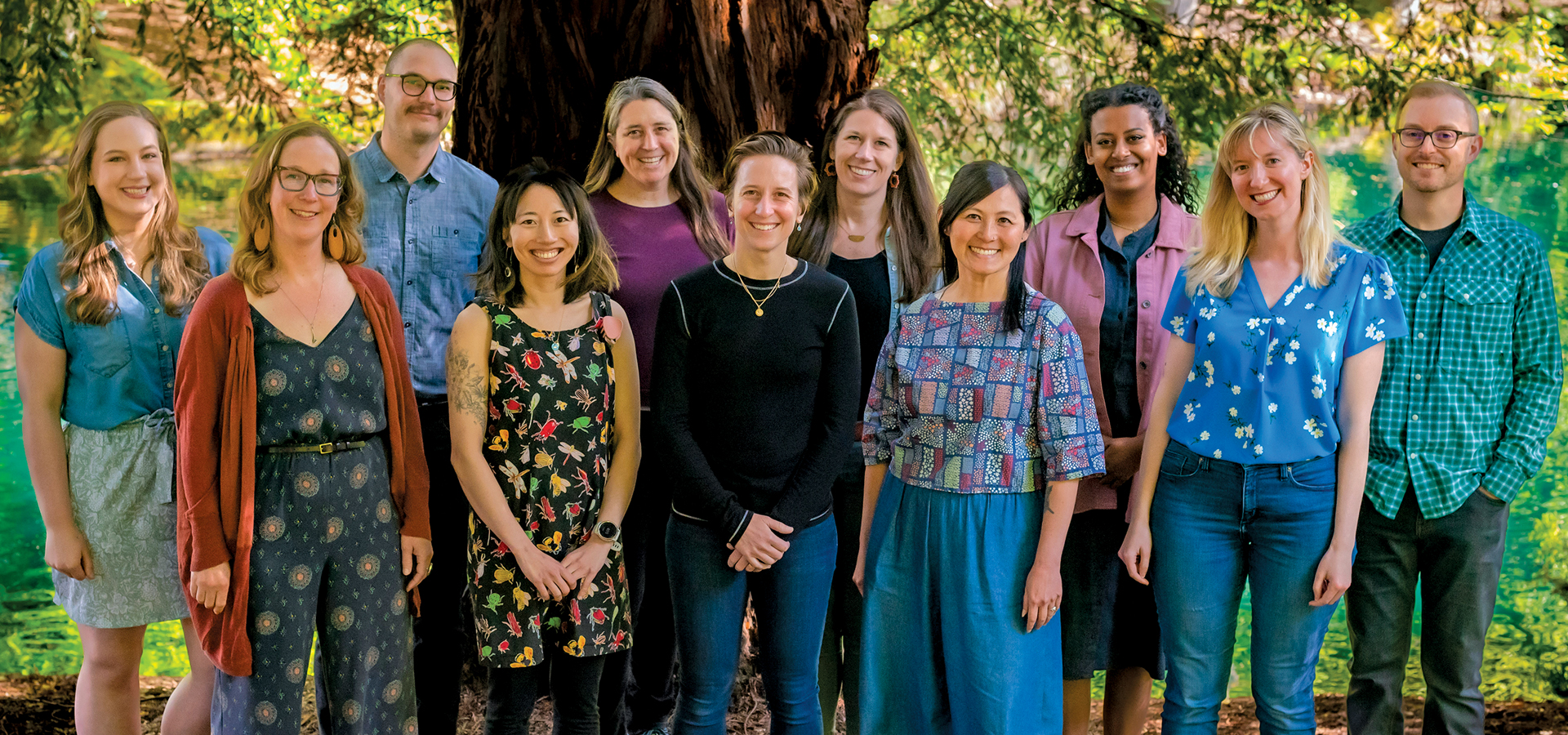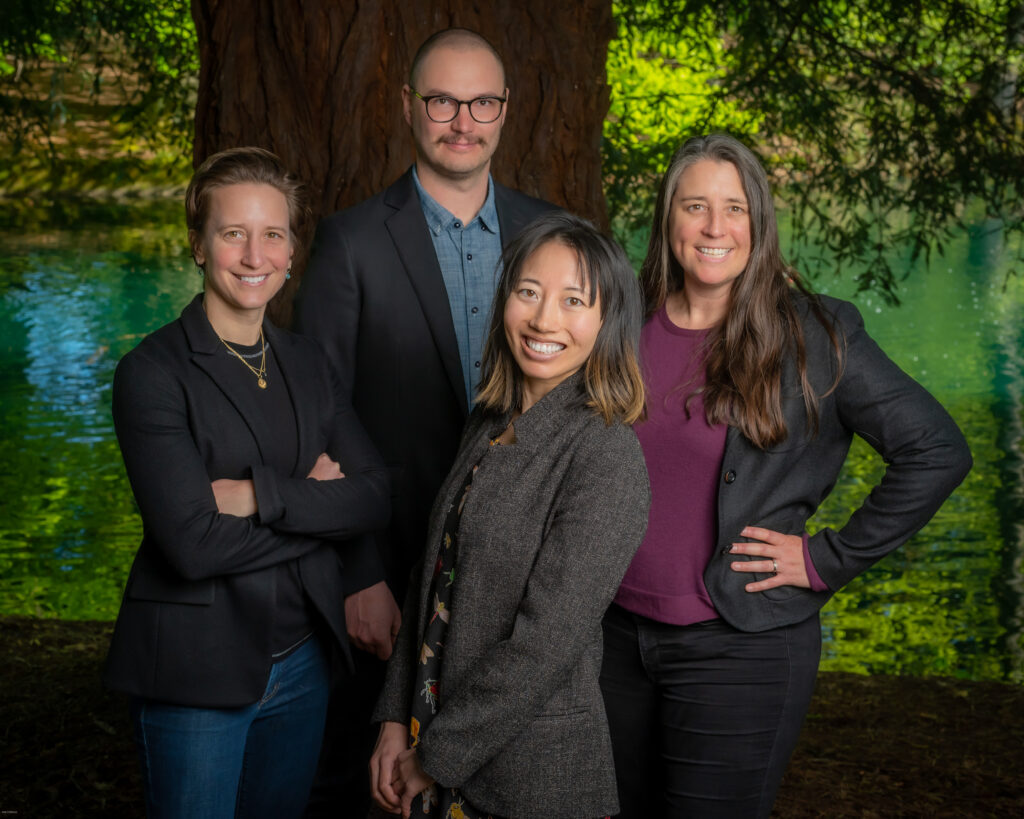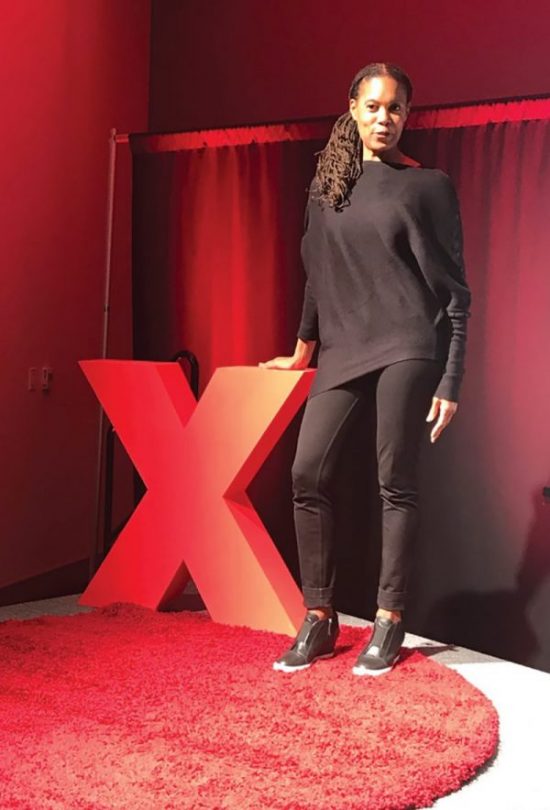Environmental Advocacy in the City

In east Portland, Oregon, the site of a former Kmart is the subject of an on-going legal battle between an out-of-state developer and local environmental advocates. San Francisco–based developer, Prologis, has leased the lot with plans to build a freight warehouse. If the proposal is approved, the development would bring more traffic and diesel pollution to the surrounding neighborhoods where residents, a large percentage of whom are people of color, already grapple with poor air quality in an urban heat island.
Residents, the local school board, a clean air advocacy group, neighborhood associations, and several environmental groups, are attempting to block the Prologis project. Meriel Darzen ’04, a staff attorney at Portland’s Crag Law Center, advises the coalition of community partners. “It’s a really interesting and complex issue right at the intersection of traditional issues of pollution and traffic and environmental justice and equity issues,” Darzen said. A victory for the coalition could mean stopping an increase in air pollution that causes high rates of asthma in the area.
Since 2001, the legal nonprofit has provided low-cost legal services to nonprofit organizations and community stakeholders holding government officials and corporations accountable to environmental protection laws. Many of the negative impacts of climate change, including heat waves, poor air quality, and flooding, disproportionately impact the health, safety, and quality of life in racial and ethnic minority communities, according to EPA studies. That’s where attorneys like Darzen are legislating for better zoning laws or reduced fares for public transportation. Crag advocates for underrepresented communities in Portland’s low-income neighborhoods, while also winning victories for old-growth timber forests and Coho Salmon in the greater region.
“We don’t have a policy agenda that we’re trying to achieve. We’re entirely responding to what the community is bringing us,” said Courtney (Watts) Johnson ’01, Crag’s executive director. “A big part of the work that we’re doing at Crag is to think about who is benefiting from our services and who has access.”

Johnson has worked at Crag for 15 years. She started as a volunteer during her first year of law school and now she leads a team of five attorneys. She explains how Crag’s attorneys approach every case through an intersectional lens—considering the ways discrimination and oppressive structures continue to impact marginalized or disenfranchised populations in Oregon. Johnson stresses that it is important to understand the city’s history in order elevate the voices of minorities or tribes and push for better laws and outcomes within these communities.
“We’re going to continue to use our traditional environmental laws to protect the environment. [But] we recognize that many of those laws are not strong enough to achieve environmental justice outcomes,” Johnson said. “So, we’re helping our clients push for better laws at the same time.”
Cases can be very collaborative, pairing Crag attorneys with attorneys from client groups or partner firms like Earthjustice. Johnson credits the broad coalition of climate groups, landowners, coastal organizations, tribes, and fishermen with turning the tides in the recent victory at Jordan Cove, a decade-long battle to stop the building of a liquified natural gas (LNG) terminal and fracked gas pipeline along Oregon’s southern coast. “Because we work across so many spaces and with so many different clients, that also puts Crag in this special position where we have the opportunity to counsel and have conversations with many different groups about environmental justice,” Johnson said.
Historically, the environmental justice movement hasn’t always been inclusive. “There have been leaders of color in the environmental space for a really long time, but they have not really been welcomed nor acknowledged as environmentalists,” Johnson said.
Crag is committed to increasing equity in the movement by creating an inclusive culture among its staff, board of directors, and the clients they serve. “One of the ways we walk the walk is by recruiting staff and board members that are BIPOC or represent diverse backgrounds and perspectives,” Darzen said.
“Crag has been a leader in the space of integrating environmental justice and equity into our work and talking about diversity on our staff and board. But diversity alone is not the goal. I’m proud of how we’re leading in that space and what we’re achieving,” said Johnson.


